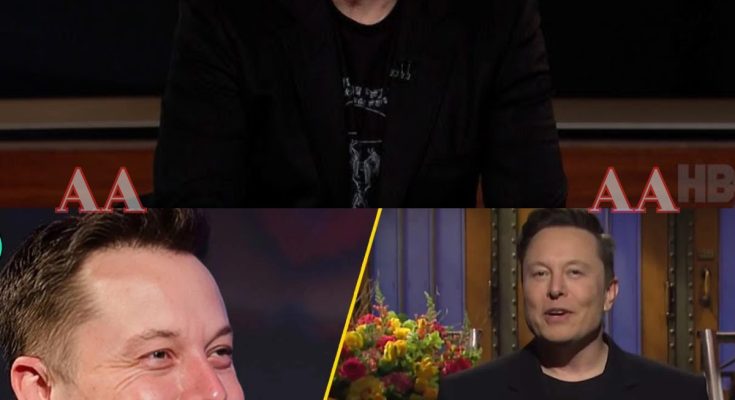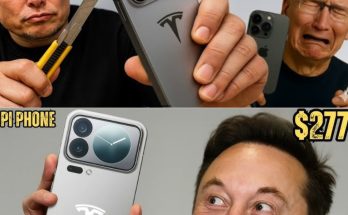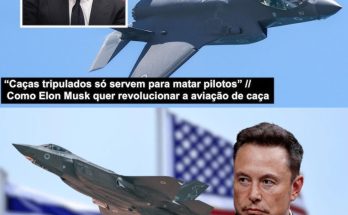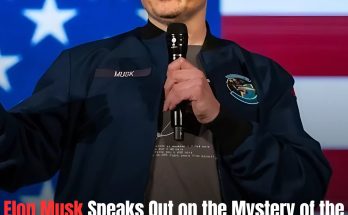In a rare and fascinating exchange between two of the world’s most influential figures, Elon Musk and Jack Ma, the conversation took an unexpected turn that left Musk visibly bewildered.
The moment occurred during the World Artificial Intelligence Conference in Shanghai, where the Tesla CEO and the Alibaba founder shared the stage to discuss the future of artificial intelligence (AI), technology, and humanity.
What started as a seemingly routine dialogue soon morphed into a clash of ideologies and perspectives that exposed the stark differences between these two titans of industry.
Jack Ma, often celebrated as a visionary entrepreneur and China’s richest man, presented views that were unconventional, to say the least.
His casual dismissal of AI’s potential dangers, his philosophical musings about humanity, and his outright skepticism of space exploration left Musk—and the audience—stunned.
It was a moment that peeled back layers of Ma’s public persona, revealing a man whose ideas challenge conventional wisdom and raise questions about his role in shaping the future.

The Conversation That Sparked Shockwaves
The discussion began innocently enough, with Musk and Ma exchanging pleasantries about the rapid development of AI.
Musk, known for his deep concern about the existential risks posed by AI, emphasized the importance of understanding and regulating the technology to ensure it benefits humanity.
Ma, however, took a more lighthearted approach, jokingly referring to AI as “Alibaba Intelligence” and dismissing fears about its impact.
“I’m not a tech guy,” Ma admitted with a smile. “I think I’m all about life. AI is going to open a new chapter for humanity, helping us understand ourselves better rather than the outside world.”
While Musk nodded politely, his expression betrayed a mix of confusion and disbelief.
Ma’s remarks seemed to downplay the profound implications of AI, a stance that starkly contrasted with Musk’s warnings about its potential to outpace human intelligence and disrupt society.
Jack Ma’s Unorthodox Views on Technology
As the conversation progressed, Ma’s unconventional outlook became even more apparent.
He expressed little interest in space exploration—a topic Musk is deeply passionate about—and dismissed the idea of colonizing Mars as impractical.
“I’m not interested in Mars,” Ma said bluntly. “I just came back from there, haha. I’m more interested in what’s happening on Earth.
Why spend so much time and money on Mars when we have so many problems here?”
Musk’s reaction was priceless—a mixture of bemusement and frustration.
For someone who has dedicated his life to advancing humanity’s reach into space, Ma’s comments were not only surprising but also fundamentally opposed to Musk’s vision of the
future.
Ma’s views didn’t stop there. He expressed skepticism about climbing the Himalayas, joking that he would only visit the peaks if an elevator were built.
He also dismissed concerns about job displacement caused by AI, insisting that humanity would adapt and thrive.
“Don’t worry about jobs,” Ma said confidently. “We’ll always have jobs.
The key is to embrace change and focus on what makes us human—our hearts, our wisdom, and our ability to love.”
Elon Musk’s Silent Critique

Throughout the discussion, Musk’s body language spoke volumes.
While Ma’s remarks elicited laughter from the audience, Musk’s reactions ranged from raised eyebrows to pursed lips.
At one point, he leaned back in his chair, visibly pondering the implications of Ma’s statements.
Musk’s silence was telling. As someone who has repeatedly warned about the dangers of complacency in the face of technological advancement, he seemed to struggle to reconcile Ma’s optimistic, almost dismissive attitude with the gravity of the issues at hand.
The contrast between the two men was stark. Musk, a self-proclaimed “tech guy,” approaches innovation with a sense of urgency and caution, driven by a desire to safeguard humanity’s future.
Ma, on the other hand, views technology as a tool for enhancing life on Earth, prioritizing philosophical and emotional considerations over technical ones.
A Clash of Ideologies
The exchange between Musk and Ma highlighted a deeper ideological divide.
Musk’s focus on scientific rigor and existential risk stands in sharp contrast to Ma’s emphasis on human connection and emotional intelligence.
While Musk views AI and space exploration as critical to humanity’s survival, Ma sees them as opportunities for self-reflection and growth.
Ma’s remarks about human intelligence further underscored this divide.
He argued that machines, no matter how advanced, could never surpass humans in wisdom or creativity.
“Computers are clever, but humans are much smarter,” Ma said.
“It’s impossible to create something smarter than humans. Wisdom comes from the heart, not chips.”
Musk, who has warned about AI surpassing human intelligence, appeared unconvinced.
His brief response—“I very much disagree with that”—captured the essence of their philosophical clash.

The Implications for the Future
The conversation between Musk and Ma raises important questions about the role of technology in shaping humanity’s future.
Ma’s optimism and focus on emotional intelligence offer a refreshing perspective, but his dismissal of AI’s risks and space exploration may be overly simplistic.
Musk’s caution and scientific approach provide a necessary counterbalance, highlighting the need for vigilance and preparation.
For viewers, the exchange was both entertaining and thought-provoking.
It showcased the diversity of thought among the world’s leading innovators and underscored the complexity of the challenges humanity faces.
While Musk and Ma may not agree on the details, their dialogue serves as a reminder that the future is shaped by a multitude of perspectives.
The Shocking Realization
As the discussion came to a close, Musk’s expression seemed to convey a realization: Jack Ma is not who we think he is.
Beneath his public persona as a tech mogul and philanthropist lies a man whose views challenge conventional wisdom and defy expectations.
Ma’s unorthodox approach to technology and humanity may not align with Musk’s vision, but it offers valuable insights into the broader conversation about our future.
For Musk, the encounter was likely a reminder that innovation is not just about technical expertise but also about understanding diverse perspectives.
For Ma, it was an opportunity to share his unique philosophy with the world, sparking debate and reflection.
As the audience filed out of the conference hall, one thing was clear: the future of technology and humanity is far from settled.
Whether guided by Musk’s caution or Ma’s optimism, the path forward will require a delicate balance of innovation, wisdom, and heart.



